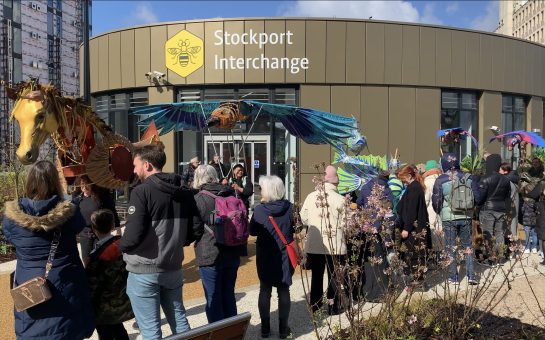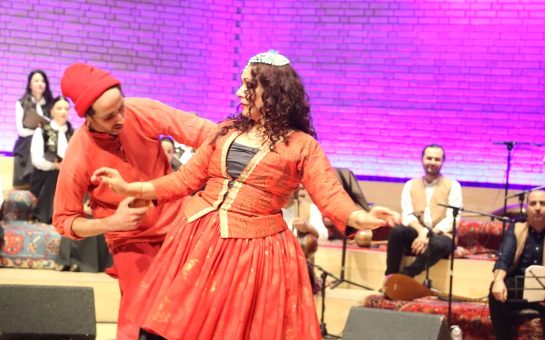Famed romantic novelist and self-proclaimed ‘media superstar’ Jilly Cooper courted controversy recently when she said journalists and not fiction writers should receive funding from the Arts Council.
Her comments came after Arts Council England revealed it is intending to hold discussions with the government about the introduction of a tax relief for independent book publishers.
But Cooper, who started out as a cub reporter on the Middlesex Independent before becoming a successful novelists, believes that would be misplaced.
Speaking on BBC Radio 4’s Today programme, she said: “What about poor journalists who are being sacked? Local newspapers are closing down, we heard about so many journalists being sacked just before Christmas.
“I think newspapers are where people learn to write, so I don’t think literary fiction should be picked out specially.
“Journalism and newspapers ought to be supported much more than literary fiction.”
Arts Council England (ACE) recently published a report entitled ‘Literature in the 21st Century: Understanding Models of Support for Literary Fiction’, which found that, in terms of sales, prices and advances, ‘the general trend for literary fiction is a negative one’.
It also stated that the ability of authors to make a living through their writing has been ‘substantially eroded’.
As a result, ACE has promised to engage more with bookshops, fund more authors and discuss with the government the introduction of a tax relief to independent publishers.
While fiction and creative writing are undoubtedly art forms, can the same be said of journalism? Both disciplines obviously take creativity and a passion for telling stories, but it has to be said that journalism is most closely associated with news and media, therefore should ACE be funding it?
Or, should there be more organisations, as ACE does for the arts, lobbying for state funding for journalism, rather than media funded by wealthy individuals?
Journalist Diane Cooke told MM: “I think the danger with receiving funding from the state is that of impartiality. It could be argued that there are few impartial newspapers in Britain, as most have a political agenda dictated by their owners.
“According to research carried out by YouGov, the British media is perceived as the most ‘right wing’ and ‘biased’ in Europe, which would seem to suggest that the current government has the support of a large part of the newspaper industry already, so why would it want to pay for it?
“China’s press is supported by the state and is subject to censorship. The government can and does use laws concerning state secrets to censor press reports about political and social conditions.
“That is not something we want to see in a democracy.”
However, finding an alternative – though much-needed – source of funding for journalism seems equally out-of-reach.
“I’d like to see more newspapers/websites supported by workers’ co-operatives with a policy of reporting fact, not politically-motivated drivel and sensationalism, but I guess that’s what you’d called journalistic utopia,” said Cooke.
Author Joseph Knox, whose second novel is due this year and whose first novel, Sirens, was published by Transworld after a torturous eight-year writing period – while he held down a steady day-job, which he still does – agrees that journalism should be better funded, but also believes funding ‘should be poured into education, libraries and independent booksellers’.
Speaking to MM, Knox said: “I actually do feel that journalism should be supported better, particularly as corporations and privately wealthy individuals (usually with their own interests at heart) are gaining more and more control over the information that reaches us.”
And, when it comes to ACE funding authors, Knox raises an important point: “As for writers themselves, I don’t know. I’ve neither received nor sought any kind of arts funding, and my feeling, fundamentally, is that ‘literary fiction’ is too broad a term to meaningfully discuss the issue.
“Who decides what’s worthy? […] I’ve read noir writers who could write rings around literary authors, and of course vice versa – why should one be raised up above the other?”
So how will ACE decide which authors to fund or not? In a report entitled ‘Models of Support for Literary Fiction’, ACE admitted that, compared to those working in other artforms, the success rate for authors is ‘not high’, but would make allowances to support individuals ‘to develop their creative practice without the requirement to describe the public outcomes of their work.’
Sarah Crown, the Art Council’s Director of Literature has said: “It’s clear that there are challenges ahead for the whole sector, in terms of responding to a changing landscape and finding a way forward that combines sustainability with excellence and ambition.
“But the starting point for tackling any problem is understanding where its root are, and where its edges lie. We believe this report achieves that – and we believe that the proposals we’re putting forward will allow us to maximise our capacity to support the sector where it needs it most.”
However, as Knox points out: “The cry seems to be that authors can’t make a living writing, but if their work doesn’t have an audience, should there be an expectation of one … Writers need readers first and foremost.”



